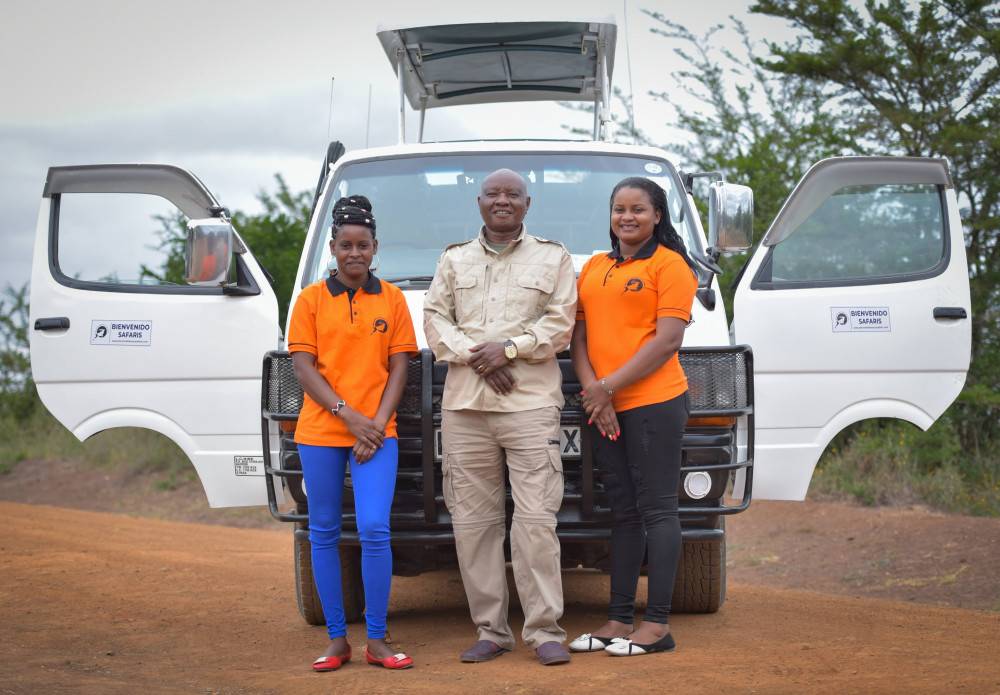Recommended News On Deciding On Taxi In Mombasa
Wiki Article
What's The Best Method Of Getting Around Mombasa During Your Vacation?
Understanding the many options for transportation for Mombasa is crucial to enjoying a pleasant and memorable holiday. Here are a few key considerations for your Mombasa, Kenya vacation.
1. How do I get to Mombasa
Moi International Airport, also called MBA is the airport that services Mombasa. The airport is able to handle domestic and international flights. Many major airlines offer flights between and to Mombasa.
By Train By Train Madaraka operated Kenya Railways offers a modern train service that is easy to travel between Nairobi Kenya, Nairobi, and Mombasa.
Bus: Bus services are available between Mombasa in Kenya and major cities like Nairobi and Nairobi.
2. Local Transportation in Mombasa
Taxis and ride-hailing services Taxis are easily accessible. Uber and Bolt ride-hailing service are available in Mombasa.
Tuk-tuks: These three-wheeled vehicles are a popular and inexpensive mode of transport in the city. These are great for trips of a short duration.
Matatus is a type of shared minibus that follows a set route. It's the most common public transportation. They're a low-cost option but they are crowded.
Boda bodas: Motorcycle taxis are a fast and efficient way of traveling especially in areas with heavy traffic.
3. Car Rentals
Hire a car at the airport or within the city. Rental companies, both local and international provide a variety of vehicles. Be aware of local driving rules and conditions.
The chauffeur service: For those who prefer not to drive, chauffeur driven car rental is also offered.
4. Ferry Services
Likoni Ferry This ferry connects Mombasa's Island to the city's southern mainland. It is required for pedestrians to reach the southern beach. Vehicles will be charged.
5. Day trips and excursions
Tour Operators. A lot of tour operators offer scheduled excursions, such as the Mombasa Marine National Park Fort Jesus as well as nearby beach resorts such as Diani, Nyali, and Fort Jesus. The majority of these tours include transportation.
Public transportation: For independent travelers, matatus and taxicabs are excellent ways to reach places of interest.
6. Walking and cycling
Rent a bicycle for a relaxing ride.
Walking: Walking is a possibility in a few areas of Mombasa particularly in the Old Town and along the beach areas.
7. Tips for Travelers
Avoid using public transport late at night. Only make use of taxis that you know. Be aware of your possessions.
Negotiation is required for Tuk-Tuks and taxis. Since meters aren't widespread, you'll have to negotiate prior to your trip.
Traffic: Expect a lot of traffic around the Likoni Ferry as well as in the central business districts during peak times.
If you are aware of these options for transportation and making the proper arrangements, you can ensure an enjoyable and stress-free holiday in Mombasa. View the top kenya safari packages prices for website advice including safari mombasa kenya, kenya travel, safari excursions, facts about kenya, mombasa beach kenya, kenya safari and beach, tours & safaris, tour agents in kenya, kenya mombasa holiday packages, mombasa tour companies and more.

What Are The Culture Issues I Need To Be Aware Of During My Holiday In Mombasa Kenya?
If you are planning to visit Mombasa, Kenya, being mindful of your culture is crucial to ensure respectful interactions with local people as well as to enhance your travel experience. Here are a few important considerations:
1. Be respectful of local dress codes.
Modest clothing: Mombasa has a significant Muslim community. It is considered polite to dress modestly when visiting public areas, places of worship, or in local neighborhoods. This means wearing a dress that covers your shoulders, chest and knees.
Beachwear. While it's acceptable to wear swimwear at the beach however, it is recommended to cover your skin when leaving the area and visiting nearby shops or restaurants.
2. Religious Sensitivity
Visiting mosques. To visit a place where you can worship, you need to first seek permission. It is also recommended to dress modestly. Women are advised to cover their heads. Everybody should take off shoes before entering.
Be aware of the times for prayer. Particularly if there's a mosque nearby Be mindful and be respectful.
3. Photography Etiquette
Permission: Before taking pictures of anyone, always ask permission from them. This is especially important in rural areas or settings that have traditional values. Certain people may be uncomfortable, or think it's intrusive.
Restricted areas: Do not snap photos in areas of concern including government buildings, military installations or other cultural sites where photography is prohibited.
4. Social Interactions
Greetings: Greeting people politely is crucial. Swahili has a greeting called "Jambo" or "Hello". Handshakes are common, but when greeting Muslim women, it is respectful to wait for them to extend their hand before they can simply greet verbally.
Your Personal Space: Be aware of your personal space and stay away from physical contact with those who aren't yours. This is especially important in conservative settings.
5. Cultural Taboos and the Norms
Public Displays of Affection: Beware of the display of affection in public, as they are generally considered to be inappropriate.
The Left Hand should not be employed. Use your right hand for eating, greeting, and exchange of items or money.
Feet: Showing the soles of your feet, or pointing your feet at others is considered rude.
6. Language and Communication
Basic Swahili A few fundamental phrases in Swahili can be a great way of showing respect and building rapport with locals. The most commonly used phrases are "Asante", "Habari", as well as "Thank you". ).
Politeness: Make sure you are polite and patient when you communicate. Kenyans are polite and respectful in their interactions.
7. Respect for local Customs
Respecting traditions Respecting traditional practices: Be respectful of rituals and customs. Follow your host's instructions if you're invited to attend a local event.
Bargaining in local shops and markets is a common practice. But, it's best done with humor and respect. It's more of an art than a confrontation.
8. Alcohol and Smoking
There is alcohol available, but it should be consumed discretely in areas where Muslims are the predominant religion. Avoid public drunkenness.
Smoking in public areas is not allowed. Smoking is permitted in designated zones.
9. Environmental Respect
Cleaning up litter: Take care to dispose of waste in a responsible manner and avoid littering. Be respectful of wildlife and natural habitats.
Conservation: Support conservation efforts and respect local wildlife and their habitats. Avoid purchasing products from endangered animals.
10. Assisting Local Communities
Local Businesses: Help local artisans, businesses and markets in order in order to positively impact the local economy.
Responsible Tourism: Choose environmentally friendly, community-based and sustainable tourism alternatives that benefit the local population.
These cultural sensitivity guidelines can help you have a an authentic and respectful journey in Mombasa. They will also increase your understanding and appreciation of the culture of the country. Check out the recommended mombasa watamu snorkeling for website tips including facts about kenya, mombasa safaris kenya, tours and safaris, africa tours and safaris, trips to kenya africa, beach in mombasa, kenya tourism, trips to kenya, tours and safaris in kenya, mombasa beach kenya and more.

What Environmental Responsibilities Should I Be Aware While On Vacation In Mombasa?
It is essential to take care of the environment when traveling in Mombasa. This helps preserve the beauty and biodiversity of this region. Here are some important considerations for the environment:
1. Sustainable Accommodation
Eco-friendly Hotel: Choose hotels that have a commitment to sustainability. Seek out eco-labels and certifications, such as Ecotourism Kenya.
Participate in hotel initiatives that promote water and energy conservation. Recycle towels and sheets and shut off lights and air conditioning when they're not utilized.
2. Responsible Wildlife Viewing
Be respectful of wildlife. Maintain a distance from animals in order not to disrupt them. Follow the guidelines provided by your guide on the tour.
Don't Feed Animals. This can cause them to change their diet and behavior.
Leave No Trace. Do not litter wildlife reserves or parks. Remove all trash and dispose of them in a proper manner.
3. Plastic Reduction
Beware of single-use plastics. Use a reusable water bottle or shopping bag as well as the utensils.
Support local initiatives Participate in beach cleanups and support organizations that reduce plastic pollution.
4. Water Conservation
Mombasa is suffering from water shortages. Turn off the taps and take shorter showers.
Use Biodegradable and Eco-Friendly Toiletries to reduce the amount of water used make sure you use eco-friendly and biodegradable toiletries.
5. Energy Conservation
Reduce energy consumption. Limit the use of air conditioning, and unplug all electronic devices when they are not in use.
Encourage Renewable Energy: Look for accommodations and tour operators who use renewable energy sources.
6. Sustainable Transportation
Public Transport: When possible take public transport such as matatus or buses to decrease the carbon footprint you leave on your feet.
Consider short-distance walking or renting bicycles. Some areas offer ecofriendly tuktuks.
7. Aiding Local Economic Development
Buy Local: Purchase items such as souvenirs or food items, as well as crafts from local artisans and vendors to help the local economy.
Fair Trade: Buy products that are fair trade certified so that local producers are fairly compensated.
8. Environmental Education
Learn and Share: Educate yourself about the local environmental issues and conservation efforts. You can share your expertise with others in order to raise awareness.
Respect local cultures: Know and accept the customs and practices of your community with respect to conservation of the environment.
9. Marine Conservation
Scuba and Snorkeling Be cautious not to touch or step onto coral reefs. To protect marine life Use a sunblock that is reef-safe.
Do not throw trash into the ocean. Participate in programs to protect marine life or help in the process.
10. Ethical Souvenirs
Avoid products from wildlife. Do not purchase products that are made from endangered species. Examples include ivory and tortoiseshell.
Sustainable Materials: Choose souvenirs that are made from recycled or sustainable materials.
11. Take part in conservation Activities
Volunteer: You can consider taking part in local conservation projects or tourism-related initiatives for the community.
Help local NGOs. Contribute to local NGOs, and groups that work to protect the natural environment.
12. Responsible Travel practices
Group Size: Travelling in small groups will minimize the impact on the environment.
Eco-Tours. Choose tour operators committed to sustainable practices and follow green practices.
Make sure these environmental obligations are at the forefront of your mind to ensure the protection of Mombasa's precious resources. Follow the best mombasa watamu snorkeling for more examples including afri safari, kenya tour operator, facts about kenya, tour company in kenya, african safari tours, mombasa tour companies, tour firms in kenya, cheap kenya safari packages, tours safari africa, kenya safari beach and more.
